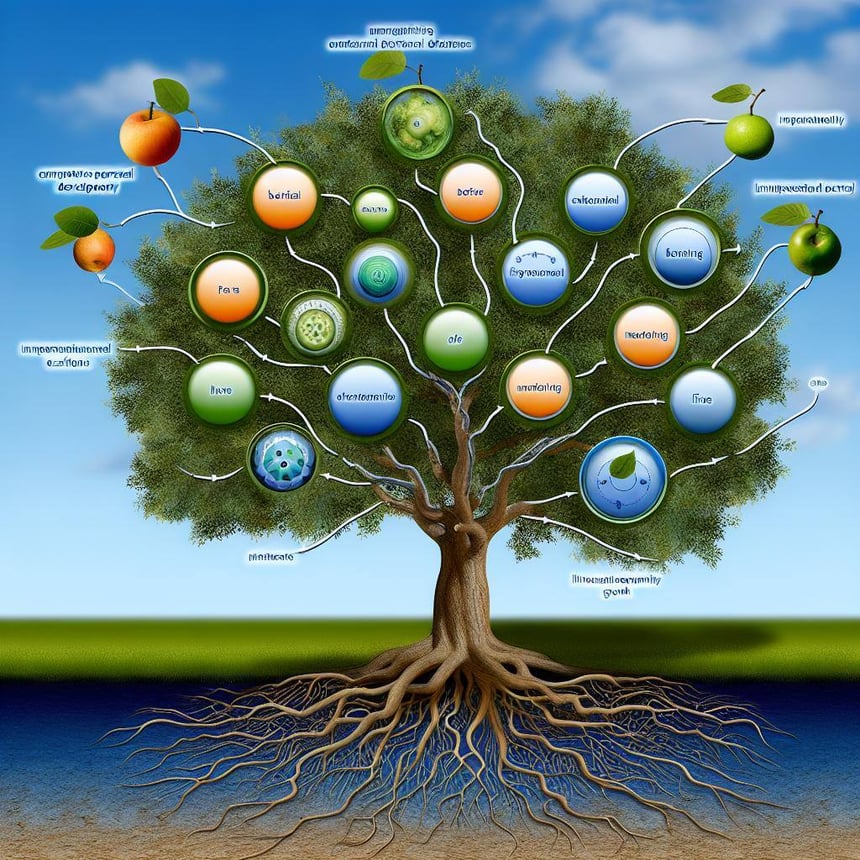Understanding the Concept of Maturity
Maturity can be defined as the ability to respond to situations and challenges in a responsible and balanced way. It is characterized by emotional stability, self-awareness, and the ability to make informed decisions.
One aspect of maturity is the development of empathy and the ability to understand and consider the perspectives and feelings of others. This involves being able to step outside of one's own needs and desires and take into account the impact of one's actions on others.
Another important aspect of maturity is the ability to delay gratification and prioritize long-term goals over immediate desires. This involves being able to resist impulsive behaviors and make decisions that are in line with one's values and future aspirations.
Overall, maturity is a complex and multifaceted concept that encompasses emotional, cognitive, and social development. It involves the integration of various skills and qualities that enable individuals to navigate the challenges of life with wisdom and resilience.
The Psychological Perspective on Maturity Development
From a psychological perspective, maturity development is viewed as a lifelong process that begins in childhood and continues throughout adulthood. It is influenced by various factors, including genetics, environment, and individual experiences.
Psychologists emphasize the importance of emotional intelligence in maturity development. Emotional intelligence refers to the ability to recognize and manage one's own emotions, as well as the emotions of others. It involves skills such as self-awareness, self-regulation, empathy, and effective communication.
Cognitive development also plays a crucial role in maturity development. As individuals grow and mature, their cognitive abilities, such as problem-solving, critical thinking, and decision-making, become more advanced. This allows them to navigate complex situations and make sound judgments.
Furthermore, social experiences and relationships contribute to maturity development. Interactions with family, friends, and society at large provide opportunities for learning and growth. Through these interactions, individuals develop social skills, learn to negotiate conflicts, and gain a deeper understanding of themselves and others.
In summary, the psychological perspective on maturity development highlights the interplay between emotional, cognitive, and social factors in shaping an individual's maturity.
Factors Influencing Maturity Growth
Maturity growth is influenced by a wide range of factors that interact and contribute to an individual's development. These factors include:
- Biological factors: Genetic predispositions and physical maturation processes can impact an individual's emotional and cognitive development.
- Environmental factors: The environment in which an individual grows up, including family dynamics, cultural values, and socioeconomic status, can shape their understanding of maturity and influence their development.
- Life experiences: Personal experiences, such as challenges, successes, and failures, play a significant role in shaping maturity. These experiences provide opportunities for learning, reflection, and personal growth.
- Education and learning: Formal education and continuous learning contribute to intellectual and emotional development, fostering maturity.
- Social support: Having a supportive network of family, friends, and mentors can provide guidance, encouragement, and feedback that facilitates maturity growth.
It is important to note that these factors interact with one another and vary in their influence across individuals. Maturity growth is a unique and individualized process.
Maturity and Personal Growth
Maturity and personal growth go hand in hand. Personal growth refers to the continuous process of self-improvement, learning, and expanding one's potential. Maturity is an integral part of personal growth, as it involves developing self-awareness, emotional intelligence, and the ability to navigate life's challenges effectively.
When individuals actively pursue personal growth, they engage in practices that foster maturity. This may involve seeking new experiences, challenging oneself, reflecting on past actions and decisions, and seeking feedback from others.
Personal growth and maturity are not linear processes but rather cyclical. As individuals engage in personal growth activities, they gain new insights and perspectives that further enhance their maturity. Likewise, increased maturity enables individuals to engage in more profound personal growth.
Ultimately, personal growth and maturity are lifelong journeys that require self-reflection, self-compassion, and a commitment to continuous learning and development.
The Role of Maturity in Building Healthy Relationships
Maturity plays a crucial role in building healthy relationships. When individuals are mature, they possess the emotional intelligence and self-awareness necessary for forming and maintaining meaningful connections with others.
Mature individuals are better equipped to communicate effectively, resolve conflicts constructively, and show empathy and understanding towards their partners, friends, and family members.
Maturity also enables individuals to establish and maintain healthy boundaries in their relationships, ensuring that their needs are met while respecting the needs and boundaries of others.
In addition, mature individuals have a greater capacity for forgiveness and understanding, which contributes to the longevity and stability of their relationships.
Overall, maturity fosters the development of healthy relationship dynamics built on trust, respect, and mutual support.



.jpg)





.jpg)



.png)
0 Comments